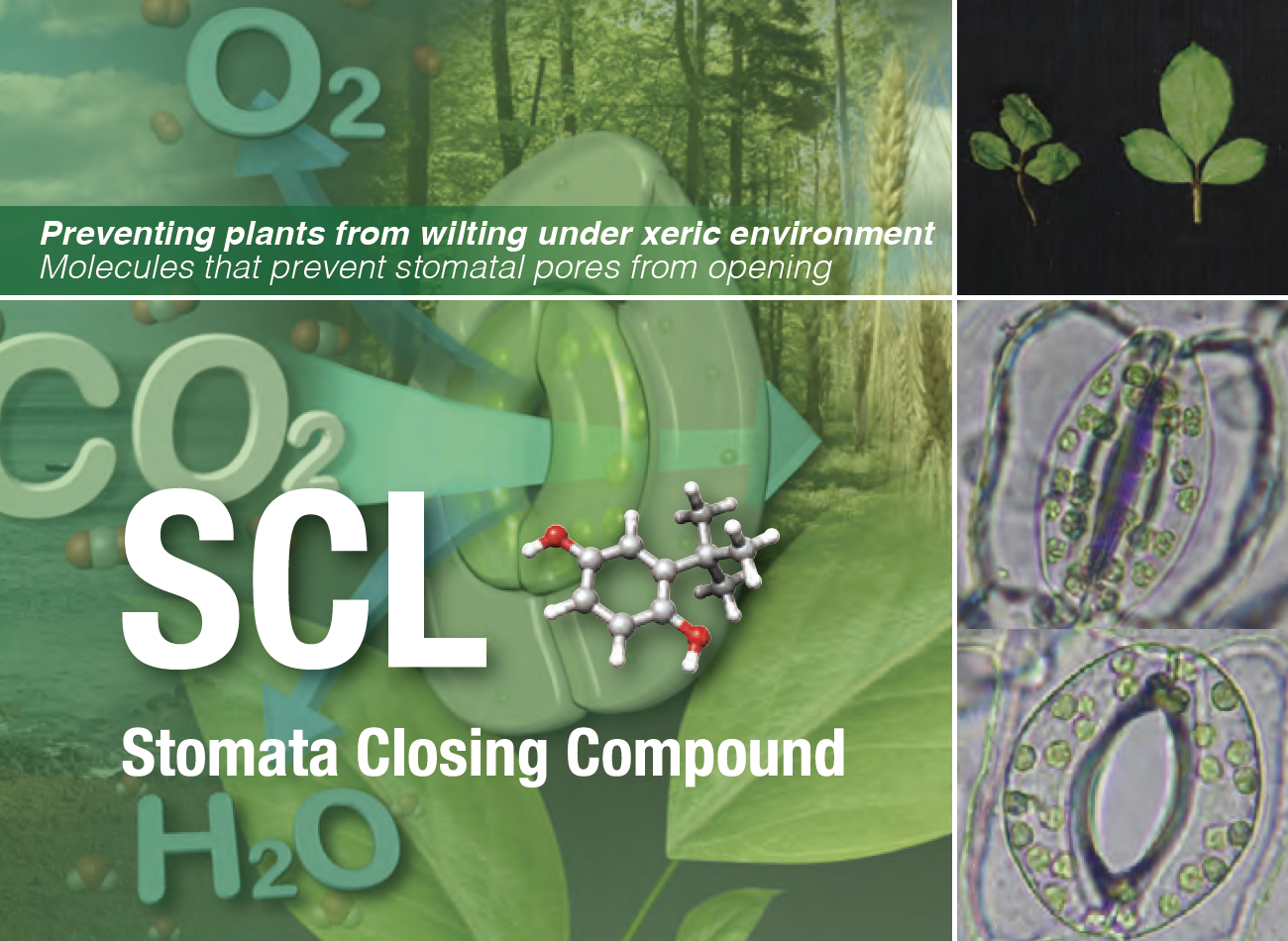
SCL; molecules that prevent stomata from opening
Stomata are pores in the epidermis of plants which open in response to sunlight, and the intake of carbon dioxide and the release of oxygen and water are regulated by stomata. For the pores to open, the plasma membrane proton pump (H+-ATPase), which acts as an engine to open the pores, needs to be driven by light.
The ITbM research groups found compounds "SCL (Stomatal Closing Compounds)" that inhibit stomatal opening. These compounds exhibit stomatal closing acidity through the inhibition of H+-ATPase and act in a different pathway from the phytohormone abscisic acid, which closes the stomata.
Closing pores to suppress wilting
By spraying these compounds on the leaves of roses and oats, they revealed that the wilting of the leaves under the dry condition was suppressed. This result is expected to be used as molecules that keep the freshness of cut flowers and flower arrangement, reduce transportation costs, and give drought tolerance against practical plants.

Reference
"Identification and Characterization of Compounds that Affect Stomatal Movements" by Shigeo Toh, Shinpei Inoue, Yosuke Toda, Takahiro Yuki, Kyota Suzuki, Shin Hamamoto, Kohei Fukatsu, Saya Aoki, Mami Uchida, Eri Asai, Nobuyuki Uozumi, Ayato Sato and Toshinori Kinoshita, Plant Cell Physiol. 2018, 59, 1568. DOI: 10.1093/pcp/pcy061